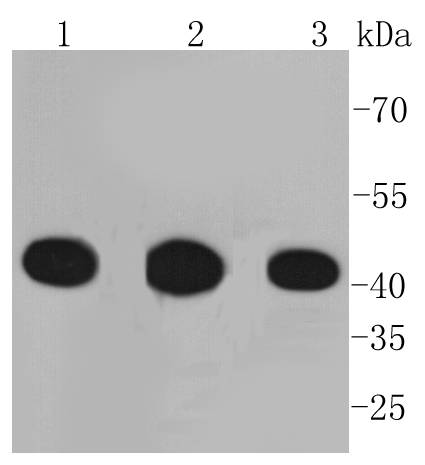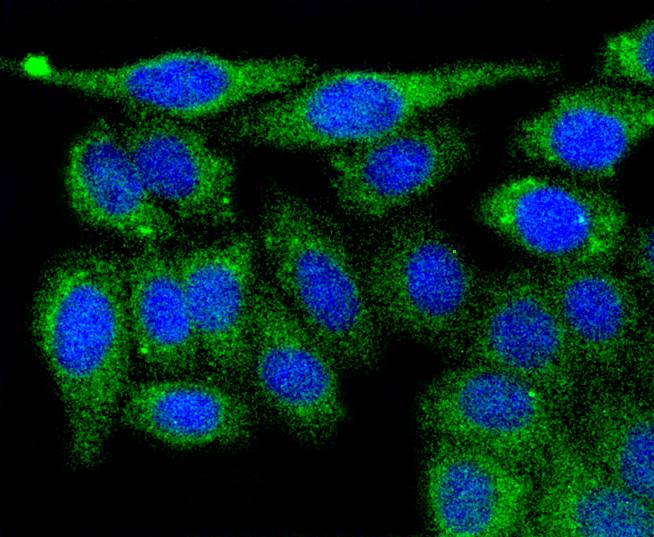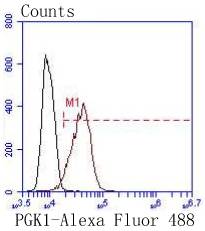Product Detail
Product NamePGK1 Rabbit mAb
Clone No.ST49-07
Host SpeciesRecombinant Rabbit
Clonality Monoclonal
PurificationProA affinity purified
ApplicationsWB, ICC/IF, IP, FC
Species ReactivityHu, Ms, Rt
Immunogen Descrecombinant protein
ConjugateUnconjugated
Other NamesCell migration-inducing gene 10 protein antibody
Epididymis secretory sperm binding protein Li 68p antibody
HEL S 68p antibody
MGC117307 antibody
MGC8947 antibody
MIG10 antibody
pgk1 antibody
PGK1_HUMAN antibody
PGKA antibody
Phosphoglycerate kinase 1 antibody
Primer recognition protein 2 antibody
PRP 2 antibody
Accession NoSwiss-Prot#:P00558
Uniprot
P00558
Gene ID
5230;
Calculated MW45 kDa
Formulation1*TBS (pH7.4), 1%BSA, 40%Glycerol. Preservative: 0.05% Sodium Azide.
StorageStore at -20˚C
Application Details
WB: 1:1,000-5,000
ICC: 1:50-1:200
FC: 1:50-1:100
Western blot analysis of PGK1 on different lysates using anti-PGK1 antibody at 1/1,000 dilution. Positive control:
Lane 1: Hela
Lane 2: HepG2
Lane 3: MCF-7
ICC staining PGK1 in HepG2 cells (green). The nuclear counter stain is DAPI (blue). Cells were fixed in paraformaldehyde, permeabilised with 0.25% Triton X100/PBS.
Flow cytometric analysis of Hela cells with PGK1 antibody at 1/50 dilution (red) compared with an unlabelled control (cells without incubation with primary antibody; black). Alexa Fluor 488-conjugated goat anti rabbit IgG was used as the secondary antibody.
Phosphoglycerate kinases 1/2 (PGK1/2, ATP:3-phospho-D-glycerate 1-phosphotransferase, EC 2.7.2.3) are somatically expressed, glycolytic enzymes that catalyze the transfer of a phosphoryl group from the acyl phosphate of 1,3-bisphosphoglycerate to ADP, thereby forming ATP and 3-phosphoglycerate. The human PGK gene is interrupted by 10 introns and spans 23 kilobases, and is X chromosome-linked at position Xq21.1, a region implicated in prostate cancer, androgen insensitivity, perineal hypospadias, and other genetic abnormalities. In addition to influencing glycolysis, the PGK1 is secreted by tumor cells and contributes to proliferative angiogenic processes as a disulfide reductase. PGK1 mediated reduction of disulphide bonds in the serine proteinase plasmin initiates the release of the tumor blood vessel inhibitor angiostatin, an event that is critical for blood vessel formation or angiogenesis in tumor expansion and metastasis.
If you have published an article using product 48900, please notify us so that we can cite your literature.





 Yes
Yes



